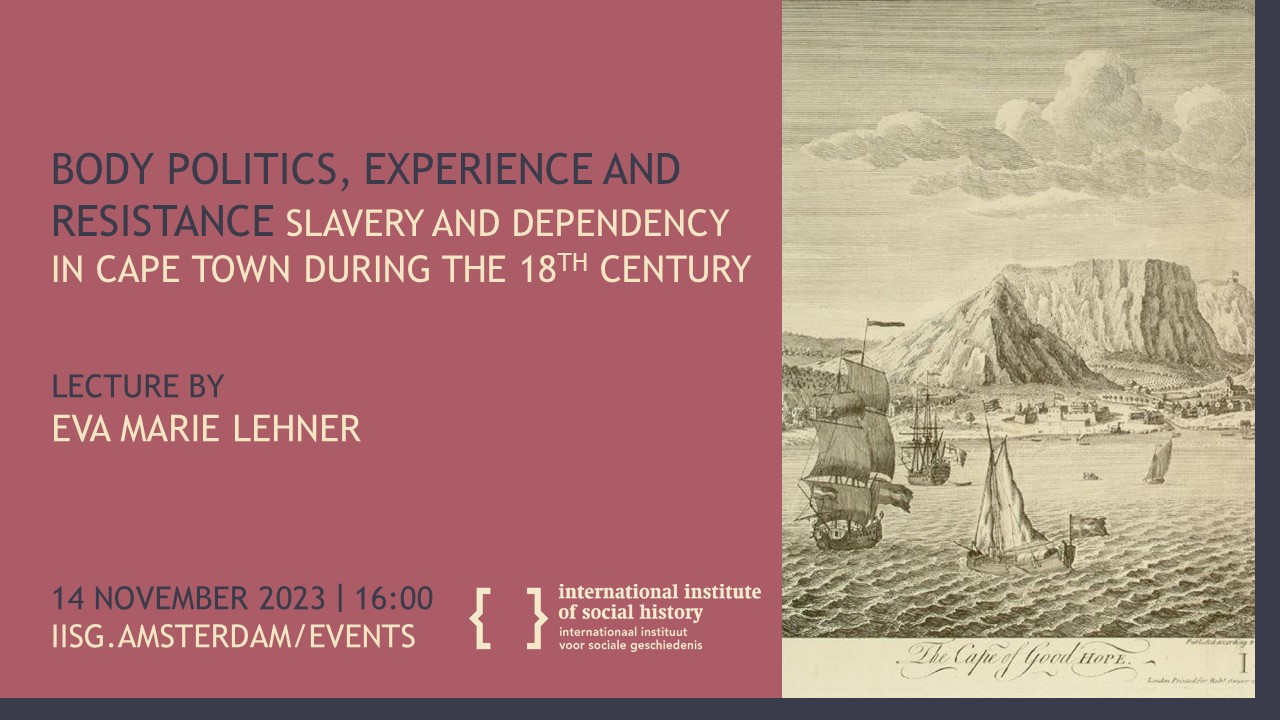Body Politics, Experience and Resistance. Slavery and Dependency in Cape Town during the 18th Century
Recent research on slavery endorses the body as a central field of interest. The project of Eva Marie Lehner takes this as a starting point.
It aims to develop a conceptualization of the body in history that includes practices of enslavement and extreme violence like forced migration, punishment, and the sexualization and racialization of bodies. The scope of the project focuses on Cape Town as a Dutch colony in the eighteenth Century. Cape Town stands out among early modern settlements because it features a strongly multicultural setting and a type of settler colonialism impacted by high mobility and inherent norms and practices of violence.
Thus, she wants to develop the project around the following three questions: Which concepts of the body shaped colonial body politics? How did people experience colonial body politics? How was resistance possible in the context of commodification and exploitation? Following these questions, the research aims for a new conceptual framework to include the body and embodied experiences in slavery studies and re-evaluate and historicize modern ideologies of race and gender.
Bio Eva Marie Lehner (postdoctoral researcher BCDSS)
Her current research project at the Bonn Center for Dependency and Slavery Studies, "Dependency, Body Politics, Resistance," investigates how dependencies shaped the bodies of those men, women, and children who had lived in and were born into strong asymmetrical dependencies for generations (like slavery and serfdom/Leibeigenschaft). Modes of inscription include physical violence, punishment, brandings, mutilations, and executions (embodied dependencies). Furthermore, I am interested in the body as a subversive element. I want to investigate practices of resistance and reluctance, like the refusal to work, eat, bear children, and (the most extreme form) live (suicide). I emphasize a body-historical perspective in dependency studies because I firmly believe it can help us read sources produced by the (colonial) authorities along and against the grain. It also allows us to identify the complex ways people experienced and resisted dependencies and overcome the simplifying binary of free versus unfree.



